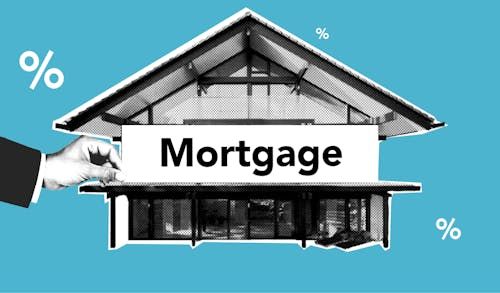You’ve probably heard the term Debt-to-Income Ratio (DTI) tossed around by lenders. But what does it really mean, and how does it impact your ability to secure financing for your dream home?
Simply put, your DTI is a measure of how much of your income goes toward paying off debts. The lower your DTI, the more attractive you are to lenders, as it shows you're likely to handle a mortgage without straining your finances.
On the other hand, if your DTI is too high, lenders might view you as a risk, which can lead to loan denial or less favorable terms. Let’s dive more into DTI and why it plays such an important role in your real estate financing journey

The Debt-to-Income Ratio (DTI) is calculated using the following formula:
DTI = (Total Monthly Debt Payments ÷ Gross Monthly Income) × 100
Where:
Total monthly debt payments include all your debt obligations, such as credit card payments, student loans, car loans, and other recurring debts.
Gross monthly income is your total income before taxes and other deductions. The result is expressed as a percentage.
What’s a Good DTI?

Understanding what constitutes a good DTI for homebuyers is the first step. The general rule of thumb is that
a) Your front-end DTI, how much of your income goes toward housing expenses, should be around 28% to 31%,
b) While your back-end DTI, which includes all debt payments, such as credit cards and student loans, in addition to your mortgage, should be no more than 36% to 43%. If your DTI exceeds these figures, it might be time to take action and lower your debt before applying for a mortgage.
Ways to Lower Your DTI and Improve Your Mortgage Chances

If your DTI is on the higher side, there are a few practical steps you can take to improve it:
1. Pay Down Existing Debt

Focus on reducing high-interest debts, like credit cards, to lower your monthly debt payments. This will reduce your DTI and improve your chances of mortgage approval.
2. Increase Your Income

Whether through a side hustle, a second job, or negotiating a raise, increasing your income will lower your DTI. The more you earn, the better your DTI will look to lenders.
3. Refinance Loans

Refinancing high-interest loans, such as student loans or car loans, can lower your monthly payments and help improve your DTI.
4. Cut Unnecessary Expenses

Examine your budget and eliminate unnecessary expenses. Even small savings on monthly subscriptions or discretionary spending can make a significant difference in your DTI.



